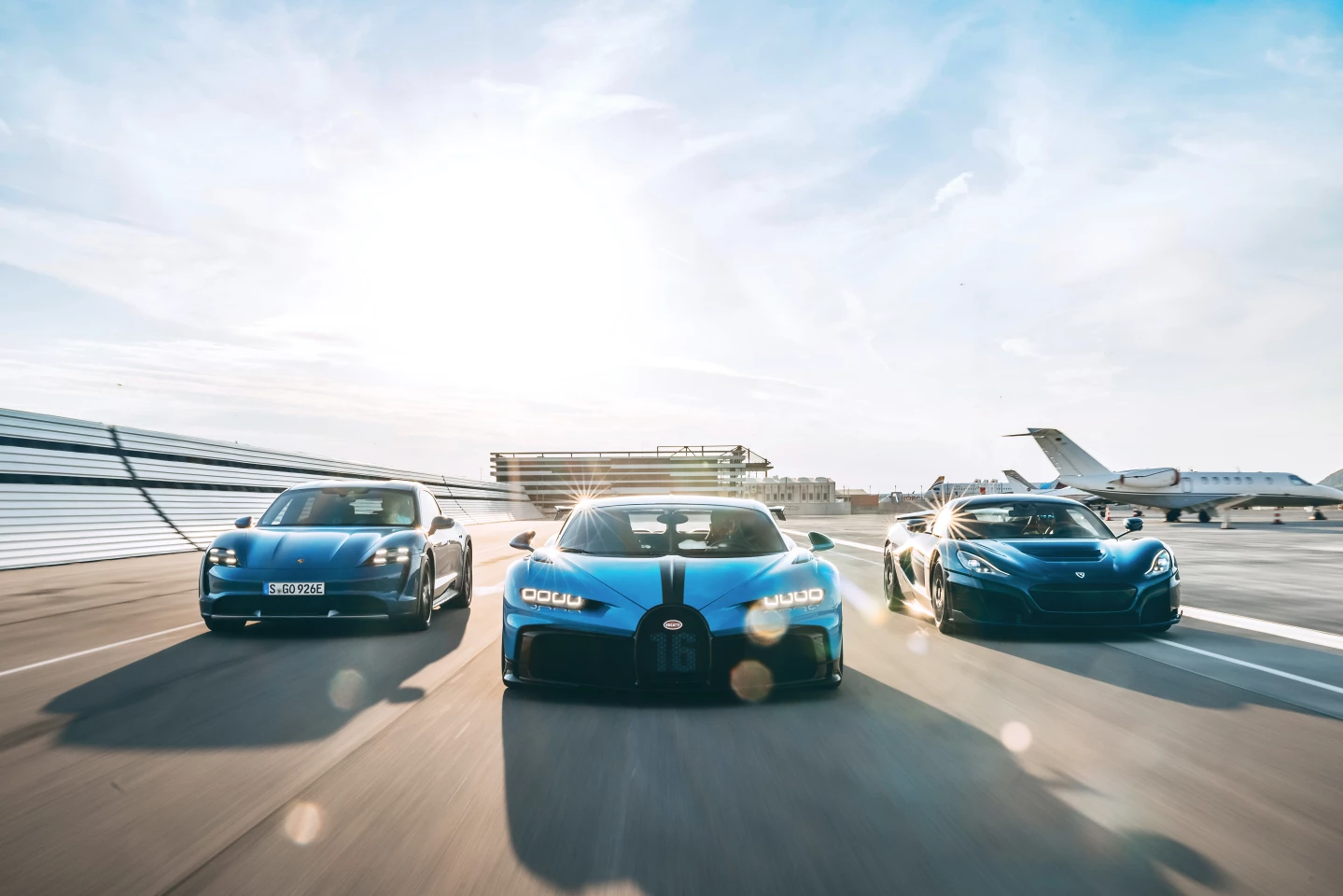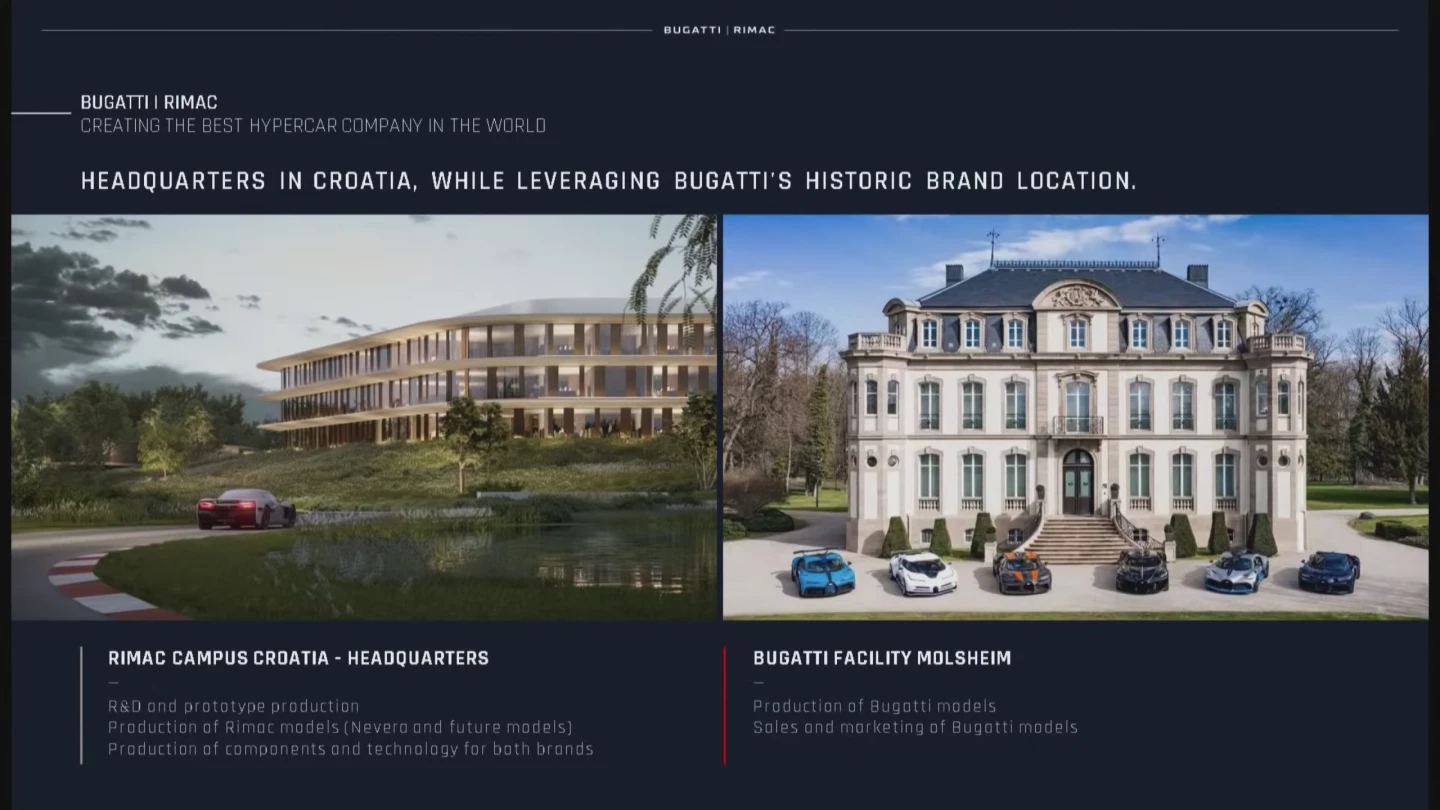After months of rumors, the blockbuster hypercar business deal of the decade is now official: storied brand Bugatti, with its 112-year history of ultra-exclusive automaking, is now majority owned by 12-year-old Croatian electric hypercar upstart Rimac Automobili.
Bugatti was founded in France back in 1909, and made some of the world's most famous and influential race cars, luxury cars and sports cars. It was a high-end, boutique automotive powerhouse right through until the death of its founder Ettore Bugatti in 1947, after which things slowly trickled to a halt in 1963.
The brand was resurrected in the late 1980s to build the EB110, a V12 supercar with a carbon fiber chassis, but really rocketed into prominence again when Volkswagen acquired Bugatti in 1998 and set about building the world's first production hypercar.
The Bugatti Veyron smashed every paradigm in the supercar world to create a class all of its own. It was the most powerful production car in history, debuting with 1,001 horsepower. It was the fastest, too, with its Super Sport version averaging 431.072 km/h (267.856 mph) to seize the title of world's fastest production car between 2010 and 2017, when it was displaced by Koenigsegg's Agera. Bugatti's follow-up car, the Chiron, was unofficially the first car in the world to break the 300-mph (482.8-km/h) mark.

It's fair to say Volkswagen thoroughly reinvigorated the Bugatti brand under its stewardship, and now it's passing the torch to 33-year-old wunderkind Croatian EV genius Mate Rimac as the electric era dawns.
Rimac, of course, has just launched his own groundbreaking hypercar. The Rimac Nevera, some 12 years in the making, is itself a technological wonder, a 1,914-horsepower, 1,741 lb-ft (2,360-Nm) AWD all-electric widowmaker that can catapult you to 60 mph (96 km/h) from a standstill in 1.85 seconds.
Under the terms of the deal announced today, a new company has been created, called Bugatti Rimac. This isn't the world's most imaginative name, but we can see why they steered clear of Bumac or Rimatti.
Bugatti Rimac will be 55 percent owned by Rimac Group, with the other 45 percent owned by Porsche. Mate Rimac will be CEO, and this new entity will own both Bugatti Automobiles and Rimac Automobili. Both companies will continue to have their own factories and distribution networks.

Does this mean Bugatti is going fully electric? Surprisingly enough, no. It'll continue to manufacture its current range, including the Chiron, for the moment, and while upcoming products will definitely be fusions of Bugatti and Rimac DNA, Top Gear reports the combustion engine will live on in future hybrid Bugattis alongside fully electric cars – and Rimac won't be confining Bugatti just to the hypercar realm, hinting that the brand might expand back into the ultra-luxury realm as well in the coming years.
Rimac Group is also splitting out its EV technology business into a new, fully independent entity called Rimac Technology, which will continue to sell powertrain, battery, infotainment, e-axle, connectivity and other technologies developed for the Nevera hypercar to other manufacturers, including Porsche, Koenigsegg, Hyundai, Aston Martin, Pininfarina and others. This company stays 100 percent under Rimac Group ownership.
Rimac also recently announced an €200-million (US$238-million) Rimac Campus development to house the companies, including Rimac's own test track, kindergarten and gym. Spread across a 100,000-square-meter (1,076,400-sq-ft) location just outside Zagreb, the Croatian capital, and ready to accommodate a workforce two and a half times bigger than the 1,000-odd employees currently working for Rimac, the new campus begins construction in the next few months and is scheduled for completion in 2023.
You can watch the entire launch event, set in a spectacular castle in Dubrovnik, in the video below.










